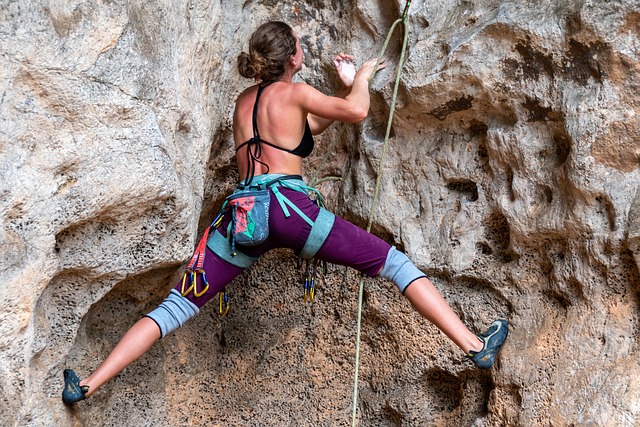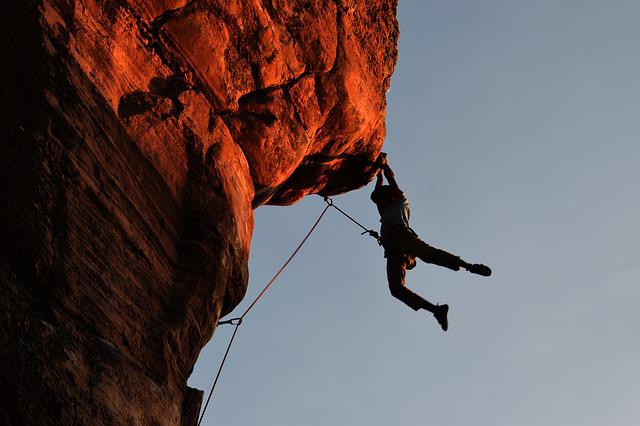Any good rock climber knows that in order to perform at your best, you need to take care of your body. That means eating a nutritious diet, appropriate training, sleeping well and staying hydrated. But it can also mean supplementing your diet with the right things to ensure that your body has everything it needs to climb to new heights. Here are 10 of the best supplements for rock climbing.
CBD
CBD, or cannabidiol, is a compound found in the cannabis plant. Unlike its more famous cousin THC, CBD does not have any psychoactive effects. Instead, it has been shown to offer a variety of health benefits, including reducing anxiety and pain. CBD is also being explored as a treatment for several conditions, including epilepsy and Alzheimer’s disease. CBD oil can be taken orally or applied topically, making it a versatile addition to any medicine cabinet.
For athletes, CBD oil has become an increasingly popular way to manage pain and inflammation. CBD is thought to work by interacting with the body’s endocannabinoid system, which plays a role in regulating pain and inflammation. In one study, rock climbers who took CBD before their climb reported reduced pain and inflammation afterwards. CBD is also being explored as a potential treatment for Delayed Onset Muscle Soreness (DOMS), a type of muscle soreness that can occur after exercise. While more research is needed, CBD oil shows promise as a safe and effective way to manage pain and inflammation for athletes of all levels.
Dose: 60mg after training has shown benefit in muscle recovery
Theanine
Theanine is an amino acid that can be found in tea leaves. It is known to have a calming effect on the mind, and it has been shown to improve focus and concentration. Theanine has also been shown to reduce anxiety levels. For these reasons, theanine has become a popular supplement among rock climbers. While theanine can help to improve focus and cognitive function, it is not a miracle drug. Theanine will not make you a better rock climber overnight. However, it can help to improve your mental state while climbing, making it easier to maintain focus and avoid getting overwhelmed by anxiety. If you are looking for an edge while climbing, theanine may be worth considering.
Dose: 100mg has shown improvements in cognitive function.
Protein
Climbing is a strenuous activity that can lead to muscle soreness and fatigue. Adding a protein powder supplement to your diet can help your muscles recover more quickly so that you can get back on the wall sooner. Protein powder is also helpful in preventing injuries since it helps to repair and build muscle tissue. For optimal effects, it is best to take a protein supplement within one hour after climbing.
Dose: 1.2-1.5 grams/kg or 30-33 grams when combined with athletic training.
Iron
Climbing takes a lot of energy, so it’s important to make sure you’re getting enough iron. Iron helps carry oxygen to your cells, which gives you the energy you need to power through a tough climb. If you’re not getting enough iron, you might start to feel fatigued more easily. The best way to get iron is through food sources like red meat, dark leafy greens, and beans. However, if you’re not getting enough from your diet, you might want to consider taking an iron supplement. Just be sure to talk to your doctor first, as too much iron can be harmful.
Dose: Depends on current iron levels. Blood testing may be required. Consult with your doctor or naturopath.
Magnesium
Magnesium is a mineral that is critical for human health. It is involved in over 300 biochemical reactions in the body, including the metabolism of energy, the regulation of blood sugar, and the formation of bones and teeth. Magnesium is also essential for muscle function, and it helps to relieve muscle cramps. For athletes and people who are physically active, magnesium is especially important. This is because Magnesium helps to maintain electrolyte balance and to reduce exercise-induced inflammation.
Rock climbers can benefit from taking magnesium supplements, as this can help to improve their performance and recovery from climbs. Magnesium can also help to prevent injuries by reducing the risk of cramping. For climbers who are looking to improve their results, magnesium may be a valuable addition to their diet.
Dose: Up to 350mg is generally tolerated well.
Creatine
Creatine is a naturally occurring compound in the body that helps to supply energy to cells. It is popular among climbers because it has been shown to improve power and strength output. This can be helpful when you are trying to send a hard route or when you need to pull yourself up a steep wall. Creatine is also one of the most studied supplements on the market, so you can be confident in its safety and effectiveness.
Dose: 20 grams for 5-7 days has shown improvement in both aerobic and anaerobic performance
Beta-Alanine
Beta-alanine is another amino acid that is popular among athletes because it has been shown to improve performance. It works by increasing the amount of carnosine in muscle cells, which helps to buffer lactic acid buildup. This can delay fatigue, arm pump and help you climb for longer periods of time without getting as tired. Beta-alanine is also relatively safe and has been well-studied, so you can be confident in its effects.
Dose: 2-6.4 grams for 3-12 weeks demonstrated improvements in exercise capacity and performance.
Collagen
Collagen is a structural protein that helps to give tissues their strength and elasticity. It is found throughout the body, including in the skin, bones, and tendons. Collagen plays an important role in rock climbing, as it helps to maintain the strength and integrity of the climbers’ hands and feet. Collagen also helps to protect against injury, as it acts as a shock absorber and can help to reduce the impact of falls. In addition, collagen aids in the healing process, helping to repair tissue damage caused by climbing. As a result, collagen is an essential component of rock climbing. without it, climbers would be at a higher risk of injury and would have a difficult time recovering from falls. Taking daily amounts of collagen through supplementation can help ensure that your body has all the required building blocks for collagen synthesis.
Dose: 10-20 grams daily has shown increases in performance.
Ginseng
Ginseng is an herb that has been used for centuries in traditional Chinese medicine. Today, ginseng is commonly taken as a dietary supplement, and it is also said to have many benefits for athletes and outdoor enthusiasts. Ginseng is thought to improve stamina and endurance, and some climbers even swear by it as a way to boost their performance on the rock. Ginseng is available in many forms, including capsules, teas, and tinctures. If you’re interested in trying ginseng for yourself, be sure to talk to your doctor first, as it can interact with some medications.
Dose: 200mg up to 3 times daily for 12 weeks has been shown to be safe. Panax Ginseng can raise blood pressure so it is important to consult with your doctor or naturopath prior to supplementation.
Caffeine
Caffeine is a popular supplement among athletes in general because it has been shown to improve alertness, focus, and power output. This can be helpful when you are trying to maintain focus while climbing. Caffeine is also relatively safe, but it is important to not overdo it as too much caffeine can lead to side effects like jitters and anxiety.
Dose: 2-10mg/kg has shown improvements in athletic performance. Up to 400mg per day has been shown to be relatively safe for most individuals.
Conclusion
These are just a few of the many different supplements that can be helpful for rock climbing. If you are looking to improve your performance, then you may want to consider adding some of these supplements to your diet. As always, make sure to consult with a doctor before starting any new supplement regimen.
References
Isenmann E, Veit S, Starke L, Flenker U, Diel P. Effects of Cannabidiol Supplementation on Skeletal Muscle Regeneration after Intensive Resistance Training. Nutrients 2021;13(9):3028
Foxe JJ, et al. Assessing the effects of caffeine and theanine on the maintenance of vigilance during a sustained attention task. Neuropharmacology. 2012;62(7):2320-2327
McAdam JS, McGinnis KD, Beck DT, et al. Effect of Whey Protein Supplementation on Physical Performance and Body Composition in Army Initial Entry Training Soldiers. Nutrients. 2018;10(9)
McNaughton LR, Dalton B, Tarr J. The effects of creatine supplementation on high-intensity exercise performance in elite performers. (abstract) Eur J Appl Physiol Occup Physiol 1998;78:236-40
Hobson RM, Saunders B, Ball G, et al. Effects of ß-alanine supplementation on exercise performance: a meta-analysis. Amino Acids 2012;43:25-37
Jendricke P, Kohl J, Centner C, Gollhofer A, König D. Influence of specific collagen peptides and concurrent training on cardiometabolic parameters and performance indices in women: A randomized controlled trial. Front Nutr. 2020;7:580918.
Sorensen H, Sonne J. A double-masked study of the effects of ginseng on cognitive functions. Curr Ther Res 1996;57:959-68.
Greer F, Friars D, Graham TE. Comparison of caffeine and theophylline ingestion: exercise metabolism and endurance. J Appl Physiol 2000;89:1837-44




